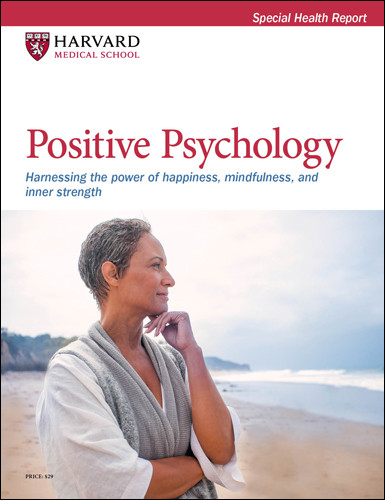Try this: How to change your negative thoughts
- Reviewed by Howard E. LeWine, MD, Chief Medical Editor, Harvard Health Publishing; Editorial Advisory Board Member, Harvard Health Publishing

You can't control the outside world, but you can try to control your reactions to it. One way to do this is with a technique called cognitive restructuring. It helps change your negative thinking and stressful reactions to daily life. Here is the four-step process:
1. Stop. Consciously call a mental time‑out when undesirable thoughts take over. By saying "Stop," you can halt the negative response cycle.
2. Breathe. Take a few deep breaths to reduce physical tension and step back from the stressor before you react.
3. Reflect. Ask yourself the following questions: Is this thought or belief true? Did I jump to a conclusion? What evidence do I actually have? Is there another way that I could view the situation? What's the worst that could happen? Does it help me to think this way?
4. Choose. Decide how to deal with the source of your stress. For example, challenge distorted, irrational thinking and adjust your view of reality. Remember, many things we worry about never come to fruition. Ask yourself, How else can I think about this? How can I deal with this in a positive way?
Here's an example of how this approach might work. If you get stuck in traffic on the way to meet a friend and feel agitated, stop, and notice signs of stress in your body, such as a tight neck and shoulders. Try to relax and take a few deep breaths. Reflect: "It's just traffic. It's not worth getting upset." Now, choose how to deal with it. Don't assume your friend will be angry. Tell yourself, "I'll just be a few minutes late. It will be okay. I'm doing the best I can. I can handle this."
Image: © mikroman6/Getty Images
About the Author

Matthew Solan, Executive Editor, Harvard Men's Health Watch
About the Reviewer

Howard E. LeWine, MD, Chief Medical Editor, Harvard Health Publishing; Editorial Advisory Board Member, Harvard Health Publishing
Disclaimer:
As a service to our readers, Harvard Health Publishing provides access to our library of archived content. Please note the date of last review or update on all articles.
No content on this site, regardless of date, should ever be used as a substitute for direct medical advice from your doctor or other qualified clinician.
















